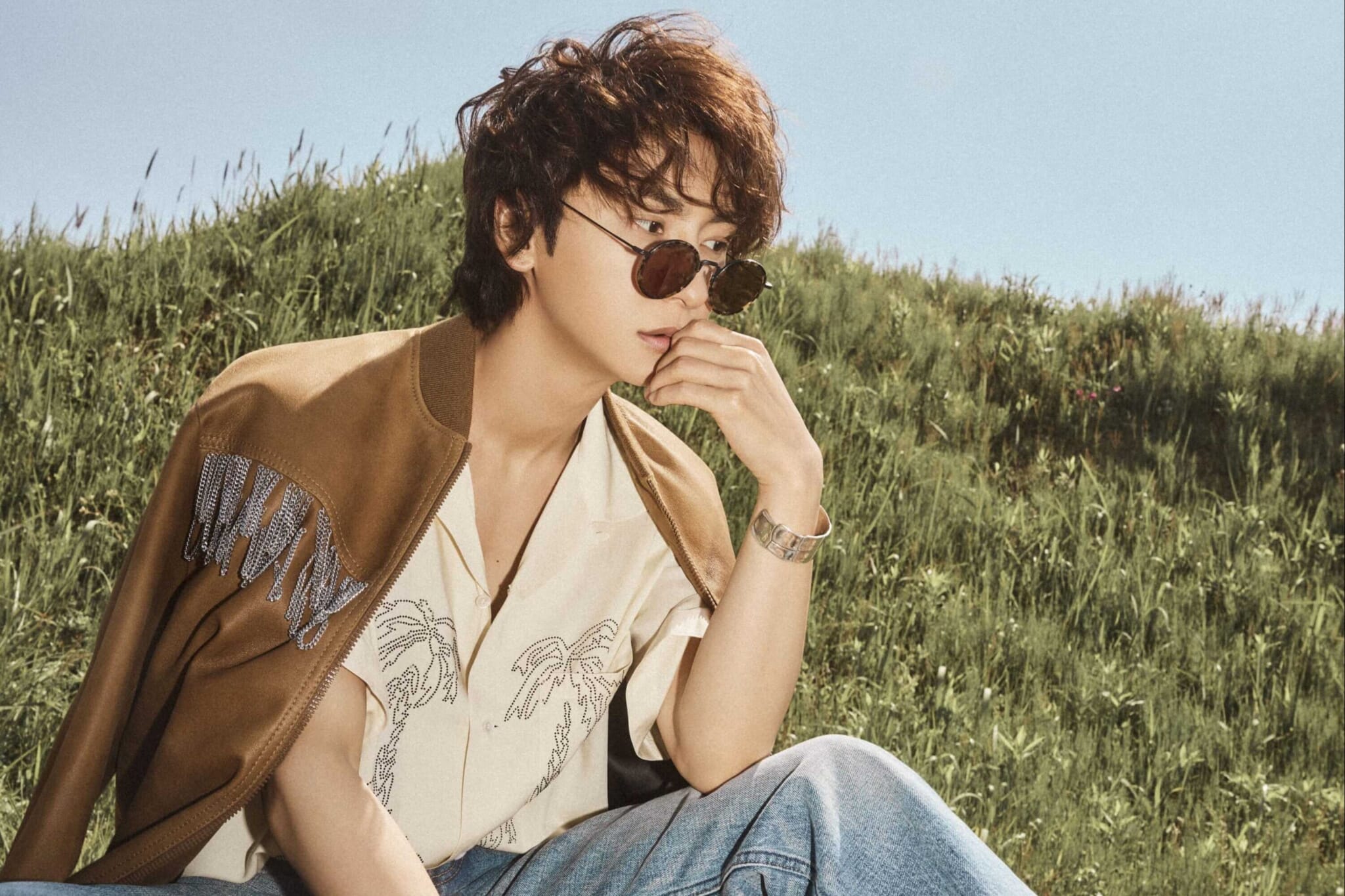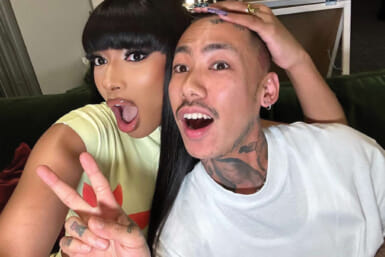Entering the stage in a dark auditorium in Tokyo earlier this year, Shinjiro Atae had never felt nerves like it. As a member of the popular mixed-gender group AAA (pronounced “triple A”), he’d performed at some of the biggest venues in Japan in front of huge crowds, but this was something different. This time, he wouldn’t be singing or dancing. It was just him standing with a letter in front of 2,000 people at a free fan event. He was about to reveal that he is gay.
“I couldn’t sleep the night before,” recalls Atae. “My management in the States and Japan reassured me, saying it was going to be fine, but I still had all these thoughts going around in my head: Are my fans going to accept it? Will they understand? I’ve been in the entertainment industry for 20 years and was worried that this could be the end of my career.
“I listened to some of my favorite music to calm me down before going out, but I think people there could sense the tension as I got on stage. I’m usually bright and energetic, but on this occasion, I was very serious.”
Fans were told in advance that the popular idol was going to speak about the “challenge” of his life. There was then silence in the audience as he began reading: “I respect you and believe you deserve to hear this directly from me,” he said, according to The New York Times. “For years, I struggled to accept a part of myself. But now, after all I have been through, I finally have the courage to open up to you about something. I am a gay man.”
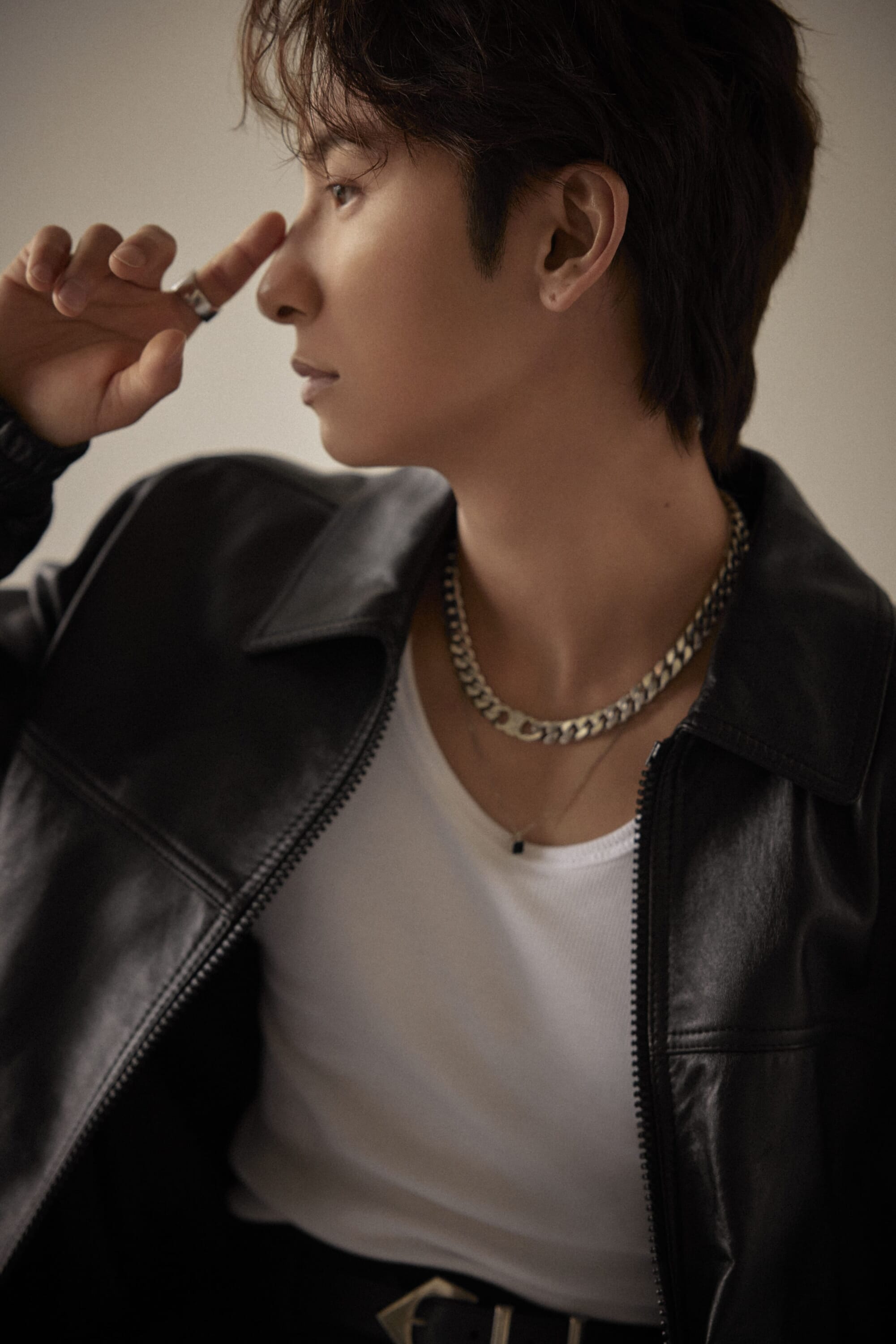
Breaking the Cycle
Such an announcement in America or Europe probably wouldn’t come as much of a shock these days. However, in Japan — the only G7 nation that doesn’t recognize same sex marriage or civil unions — the situation is different. While there has been an increasing number of gender-nonconforming celebrities such as Matsuko Deluxe and Ai Haruna on TV in recent years, it’s rare for anyone in the entertainment industry to come out as gay, especially midcareer. Atae is arguably the biggest name to do so.
“I didn’t want to be this ‘hero’ who came out first in Japan, but if nobody does it, then the cycle’s never going to be broken,” he says. “I’d gotten used to saying ‘I’m gay’ in English, but I found it more difficult to utter those words in Japanese. Asia in general doesn’t really have that ‘coming out’ culture. Around the world, many celebrities make this kind of announcement in a magazine or something like that, but I’m very close with my fans, so I wanted them to hear it directly from me.
“I was in tears reading the letter,” continues Atae. “At first, there was silence and pretty much no reaction. I think people were in shock. Then I heard some shouting: ‘Ganbatte,’ ‘We love you’ and ‘It’s going to be OK, Shin-chan!’ I could really feel their support. This gave me the courage to keep reading until the end. It would be great if it could have an impact on people who are struggling with their sexuality. Ultimately, though, I hope that announcements like this aren’t necessary in the future.”
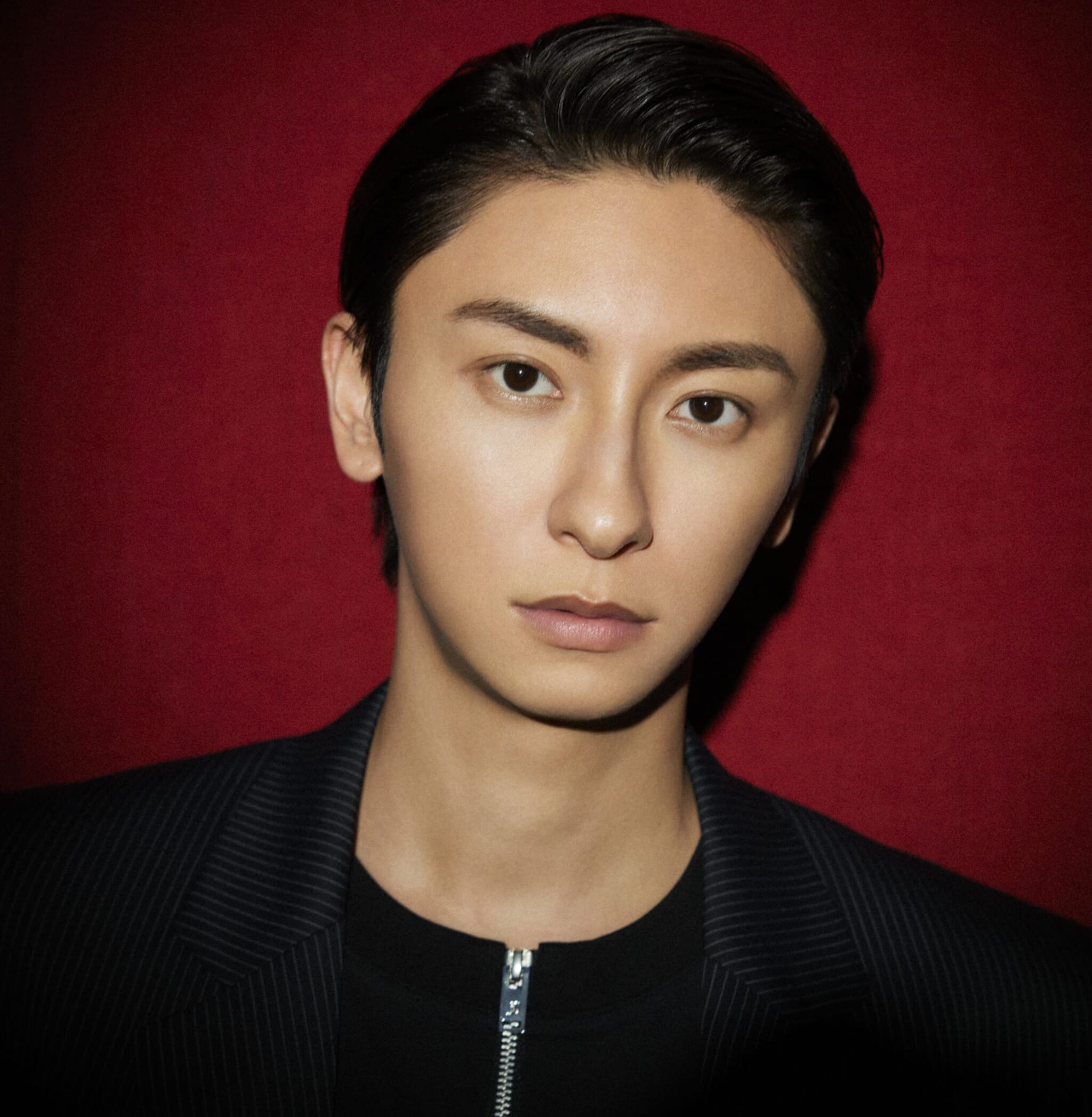
A Different World
Feeling emotional about coming out to his fans, Atae decided to delete social media sites from his phone that week. After a day or so, though, one of his managers told him to look at some of the comments. While he says there were some “inevitable disparaging remarks,” the vast majority were positive. The outpouring of support was even bigger than he could have imagined. Comments and direct messages came in from all over the world — and not just from members of the LGBTQ+ community but from all kinds of people who’d been suffering in silence.
“It’s a different world now than when I was growing up,” says Atae. “The LGBTQ community is so visible and accessible these days, whether that’s through clicking on Instagram or watching a drama on Netflix. A couple of decades ago, it was incredibly rare to see a gay scene on television, and if there was one, people saw it as something that was gross. Being part of that kind of environment, I felt I was wrong to have the thoughts I had.” Atae conveyed those feelings in his single “Into The Light,” released earlier this year. “Since I was younger, never felt like I belong,” he sings. “That voice inside my head telling me I was wrong.”
Of course, being in the public eye didn’t make his life any easier. AAA, an abbreviation for Attack All Around, enjoyed huge success, with several No. 1 albums. There was subsequently lots of interest in the personal lives of the group’s members. Atae had to field questions about girlfriends, usually replying that he was too busy with work. Thinking he wasn’t normal, he had a hard time accepting himself, but his mind started to change when he moved to Los Angeles in 2016.
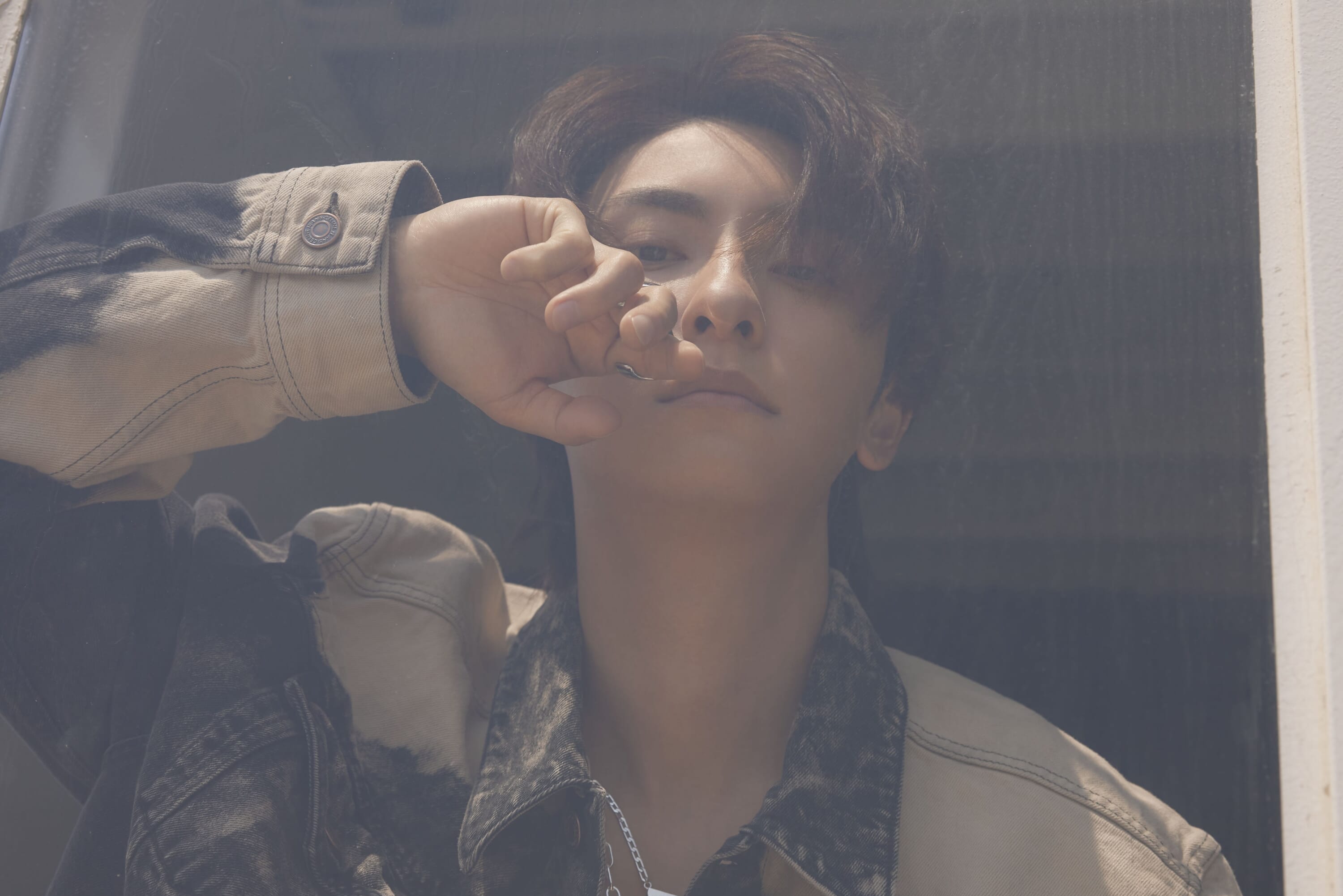
Mental Health Awareness
“I wouldn’t have come out if I hadn’t moved to LA,” says Atae matter-of-factly. “It’s an open society where people express their feelings freely. If two men are kissing on the street, nobody raises an eyebrow. Seeing that, I started to think maybe I wasn’t wrong, and I should come out. “At the same time, though, I had to think about my family and the group and the effect it would have on them. I love Japan and Japanese people, but it isn’t easy to be open there. People tend to keep their feelings inside and try to avoid showing any weakness. It’s a country with an amazing culture where people are really kind to others, but sometimes I feel we, as Japanese, aren’t kind enough on ourselves.”
Being kind to himself was a concept that Atae struggled with before moving to America. It’s a topic he addressed in his book Every Life is Correct, But Incorrect, released in 2022. Making his debut with AAA in his mid-teens, he was thrust into the limelight and went on to enjoy great success, not only as a pop artist but also as a model and actor, garnering several lead roles. Everything, though, was not as rosy as it seemed. He was plagued by self-doubt, questioning whether he was good enough for the group. This led to him often being negative around others.
“I would look around and see happy people and wonder why I couldn’t be like that,” he recalls. “I didn’t do anything about it or talk to anyone because I didn’t think I could. Back then, I wasn’t even aware of the word ‘mental health.’ I learned about it very quickly after moving to the States, though, and became more positive as a result. I’d love to see more celebrities and television shows addressing the topic in Japan because there aren’t enough people talking about it.”
Atae is determined to change that and would like to take on more projects related to mental health in the future. It’s also likely to be a subject that will be discussed in an upcoming documentary film about his life and journey, though details about that are being kept under wraps for now. Set to be produced by Academy Award winners Peter Farrelly (Green Book) and Fisher Stevens (The Cove), it’s certainly something to look forward to.
Related Posts
- Yu: A Rising Star Returns
- A Star on the Rise: Interview with Hio Miyazawa
- 2019 Wrap-Up: Tokyo Weekender’s Top Favorite Interviews
Find Atae and his work at shinjiro-official.com and on Instagram at @shinjiroatae1126.

